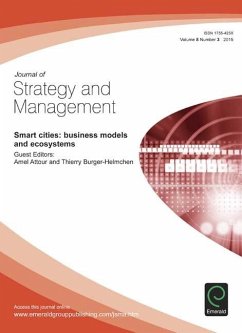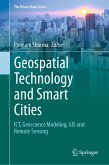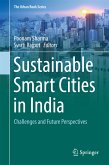This eBook proposes an overview of the main strategic and managerial challenges faced by public and private actors involved in the deployment of green and sustainable innovations that characterise Smart City (SC) projects. Although a general definition and a clear framework is still lacking, the concept of Smart City appears as a new paradigm of intelligent urban development and sustainable socio-economic growth. However, as SC initiatives are conducted in countries with different needs and contextual conditions, identifying shared definitions and common current trends at a global scale is still difficult. Different academic works from different fields have investigated the subject in a variety of ways. The first one defines, or more accurately confuses SC with that of a digital city. In fact, there is a wide agreement that a SC is characterised by a pervasive use of Information and Communication Technologies (ICT) in various urban domains in order to help cities make better use of their resources. ICT systems are viewed as the digital nervous systems that obtain data from heterogeneous sources (i.e. traffic lights, parking spaces, security cameras, etc.). A SC is then viewed as a complex system in which a great volume of real-time information is processed and integrated across multiple processes, systems, organisations and value chains to optimise operations and inform authorities on incipient problems. A SC is then a city where ICT contributes substantially to solving the emerging problems of urban living. De facto, one additional characteristic of SC is the role of human capital. ICT is unable to transform cities without human capital, and without fostering a city's capacity for learning and innovation. Papers in this eBook discuss the above concepts and also include a study of the specific case of transport and mobility, the deployment of smart innovations and the need for highly-skilled workforces, the core components of a SC and suggestions to improve their smartness, green innovations, such as Smart Meters and their role in far-reaching transformation of their sectoral system, a discussion of how SC development depends on the deployment of an innovative public-private partnership leveraging eco-innovations "e;with"e;, "e;for"e;, and "e;by"e; citizens, a proposed framework for analyzing SC initiatives using the case of Barcelona, and an analysis of resource-based co-innovation in mobile platform-ecosystem.
Dieser Download kann aus rechtlichen Gründen nur mit Rechnungsadresse in A, B, BG, CY, CZ, D, DK, EW, E, FIN, F, GR, HR, H, IRL, I, LT, L, LR, M, NL, PL, P, R, S, SLO, SK ausgeliefert werden.









